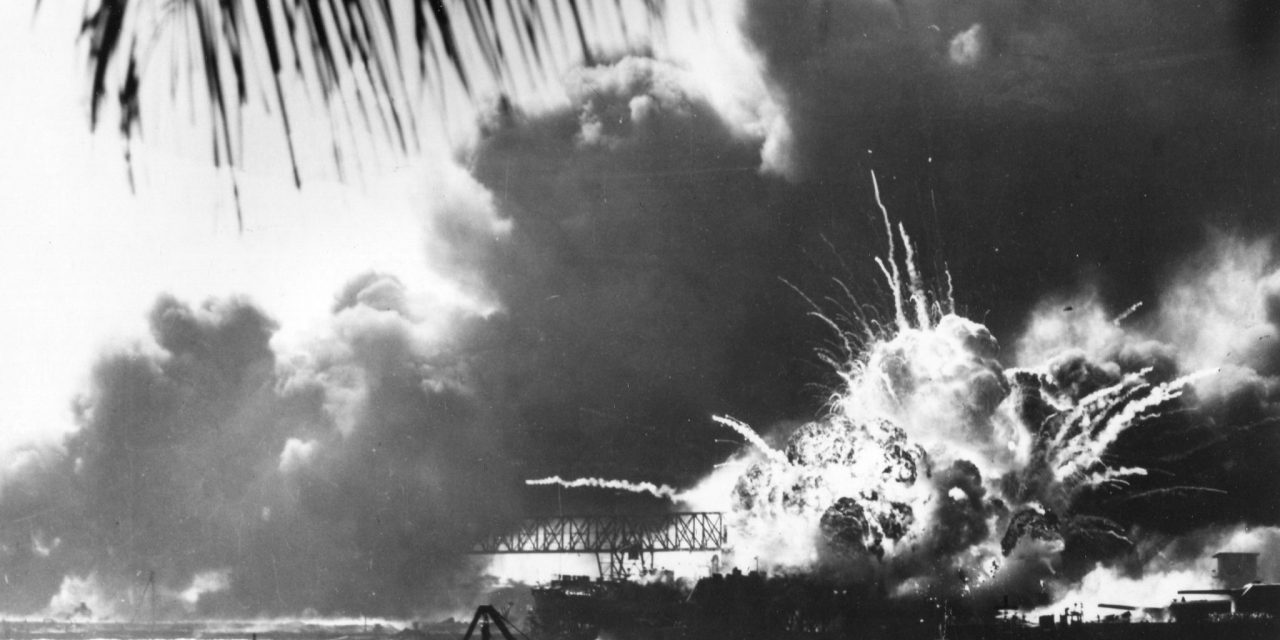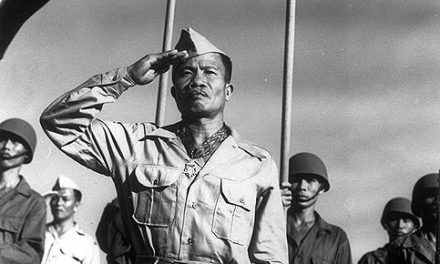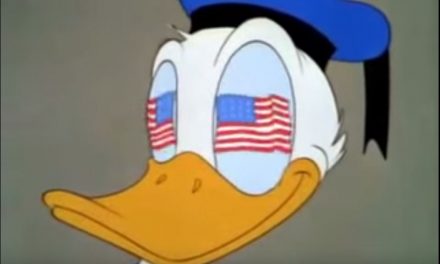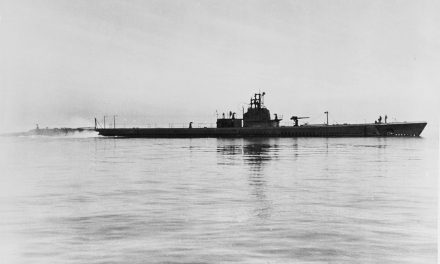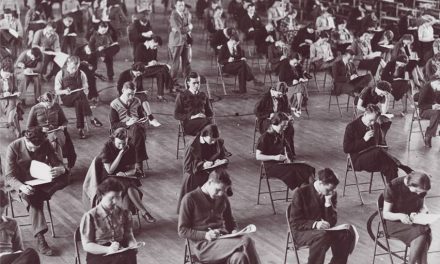Come Hell or High Water
Stephen Acocella climbed out of a pickle barrel and walked into the United States Marine Corps recruitment center in New York City. Acocella had hitchhiked and walked the 20 miles from his boyhood home in Montclair, New Jersey to enlist in the Marines, but the smell of pickle brine from the ride in the back of a truck carrying pickle barrels almost blew his shot.
“They couldn’t wait to get rid of me,” Acocella said. “But I was going to be a Marine come hell or high water.”
Acocella joined the Marine Corps by “pure accident” right after finishing his high school education. There was no work to be found at this time and Acocella was the eighth child among the 12 in his family. His goal was to enlist and send his wages home to his father to help support the family.
After a thorough physical examination Acocella was the only applicant to be selected out of the five men who tried to enlist that day. He was sent to boot camp training in Parris Island, South Carolina, where the recruits were put through what Acocella called “90 days of hell.”
The same perseverance that brought Acocella to that New York City recruitment center powered him through basic training and earned him respect from strict superiors. To make sure you had the makings of a Marine, they tried to break you. But Acocella pushed through to make the grade.
Finally, he was able to send money home to his family. When he was sent to the U.S. base at Guantanamo Bay, Cuba, Acocella was making $21 a month and sending home $15 to his father.
After nine months in Cuba, Acocella found himself shipped off to Pearl Harbor, Hawaii aboard the U.S.S. Henderson along with 3,000 other men. The Jersey boy landed in Guam two weeks ago, on Dec. 1, unaware of just how much perseverance he would need to summon this time.
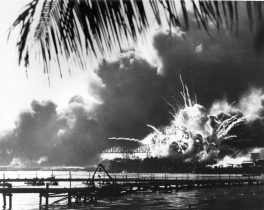
The U.S.S. Shaw exploding during the Pearl Harbor attack. From National Archives.
Unarmed and Angry
The sun shone brightly in the early morning on Dec. 7. Acocella and his bunkmate were bickering over who had to suffer through mess hall duty and who deserved guard duty.
“It started out like any other day in the Marine Corps,” Acocella said.
They were stationed at Salk Lake Camp, between the harbor and the Hickam Air Field. Their goal upon arrival had been to set up gun positions in that area to protect the harbor.
As soon as Acocella accepted defeat and got ready for mess hall duty, the first bombs fell. Suddenly, the sky was full of planes causing explosions that shook the ground and turned the sky black. Acocella and the 60 other men in his battery ran for cover from machine-gun fire and bombs.
They had arrived only a week earlier and had no ammunition or weapons ready to combat the attack. There was no communication between the men and the rest of the islands to find out what was happening and the severity of the situation.
They had thought perhaps it could be some kind of Army or Navy maneuver, but soon the men saw the insignia on the planes as they flew overhead. It became clear that the Japanese were firing at them. “We had guns with no ammunition. They were tree top high and I could see them smiling at what they did to us,” Acocella said.
Once the cause of the attack was known, Acocella and the unarmed soldiers had nothing to combat the Japanese with except rocks they found on the ground and the obscenities that they yelled at the enemy pilots. The whole day was spent in uncertainty and anger at not being able to fire a single shot as fighter pilots rained bombs down on them.
Throughout the day, Acocella listened to terrifying rumors about thousands of Japanese troops landing on the beaches of Hawaii. The odds wouldn’t be in his favor if those rumors were true. It would be 3,000 against 300, and the odds that Acocella would be able to continue to the send those checks to dad would be slim.
“We would have to stand back-to-back and fight to the death. That really made us crap in our pants,” Acocella said.
Fear gave way to the grave reality of the aftermath that followed the attack. Acocella was called to help clean up the bodies from the beaches, and recover the fallen soldiers. He drove the trucks to Ford Island to pick up the ammunition they had been lacking. Acocella cleaned the beaches, tearing his hand with barbed wire while setting up defenses along the beach.
The smell from the pickle barrel back in New York was replaced with a salty brine of ocean water and blood.
Source: Stephen H. Acocella Collection (AFC/2001/001/27369), Veterans History Project, American Folklife Center, Library of Congress.

